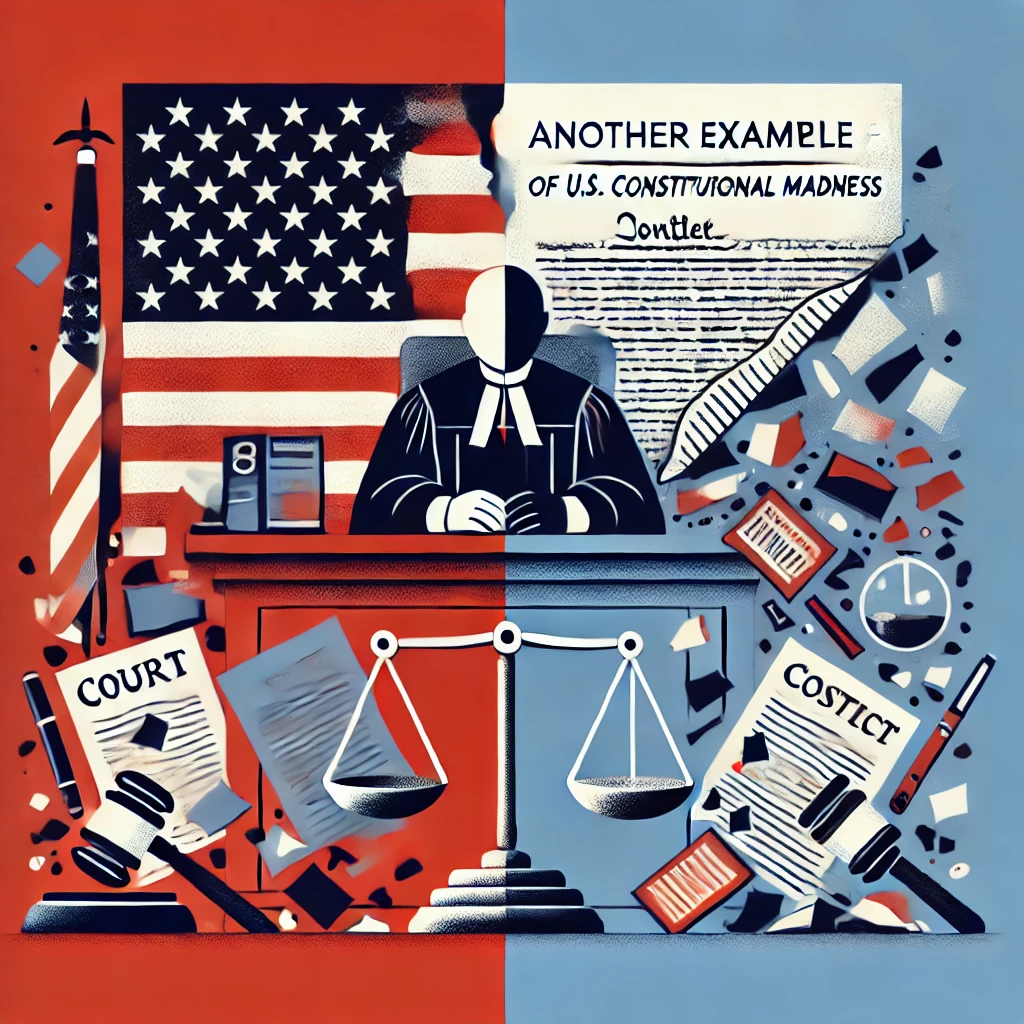
“If one really wishes to know how justice is administered in a country, one does not question the policemen, the lawyers, the judges, or the protected members of the middle class. One goes to the unprotected – those, precisely, who need the law’s protection most! – and listens to their testimony.” James Baldwin
On Thursday, January 9, 2025, the day before his sentencing for crimes committed in the great State of New York, President-elect Donald Trump’s last-ditch effort to prevent it from happening proved to be unsuccessful before the Supreme Court of the United States. Although the presiding judge over the state’s case, Juan Merchan, had previously announced that Mr. Trump would not see any jail time because of recent political developments the guilty verdict — which was issued by a jury of his peers, based upon solid evidence and which warranted prison time and, in principle, his disqualification from public office — was to be upheld.
Mr. Trump’s attempt to prevent his sentencing was thrown out by a lower appellate court before it was taken to the Supreme Court. But despite the fact that law and order appeared to have won in this matter before the bar of justice, what was most disturbing to this writer was the manner in which the decision was arrived at. It was not a unanimous decision, as anybody with a modicum of knowledge with respect to American law, or who might have had hard-core experiences dealing with the legal system would have anticipated. The ruling of Judge Merchan was upheld by a razor-thin margin of 5 to 4, with Associate Justices Alito, Kavanaugh, Thomas, and Gorsuch voting in dissent.
The four justices in question, whether anyone realizes it or not, had not only voted against the New York court’s just ruling on the matter with respect to sentencing, but they also did so against all state and federal laws having to do with well-reasoned, soundly logical and completely fair jury decisions, within the Union. They also did so against the very tenets of the Constitution of the United States, which clearly affirm and stoutly undergird such laws. By their votes, the judges who chose the path of dissent had not only violated their constitutional oaths, but they were guilty of attempting to obstruct established legal processes and outcomes. Furthermore, their hypocrisy was highlighted against their self-righteous claims of being the guardians of “states rights”. No better words speak of their actions as those of the illustrious William Shakespeare when he wrote, in his play, Much Ado About Nothing:
“Foul words is but foul wind, and foul wind is but foul breath, and foul breath is noisome; therefore I will depart unkissed.”
Like most Americans who have serious concerns or a passing curiosity about such matters, the next step after hearing the news of that stage in the case was to listen out for opinions from all the judges, both who found themselves in the majority and those, conversely, who found themselves in the minority. This writer, in nearly all circumstances, would have found himself in that number. But in that instance, there is nothing that they in the minority could ever conjure, allegedly, from out of the glorious portals of heaven, or from out of the fiery bowels of hell that could, at even the barest minimum, pay lip service in order to feign respect for the intelligence of most people in the world, let alone those within the United States.
For most adjudicated criminal cases which bear the same dark stain of rank illegality as the Trump case, those which were committed by the poor, or by people of colour, there would not be enough paper towels to dry the tears of laughter from the eyes of all of the justices on the court, upon hearing requests by litigants to overturn them, and before deciding not to entertain them, or during deliberations to sustain them. Some legal matters are so patently obvious that even children in kindergarten could be trusted to make the most logical and fair decisions on them.
The first attempt at storming the Capitol building, where so many of our laws are made, on January 6, 2021, was again attempted by the four justices on January 9, 2025, without them ever wielding flagpoles and then beating police officers bloody, without throwing objects so as to break windows and doors, and without unleashing copious amounts of blinding bear spray. They, however, had attempted to do so with the more dignified and cunning uses of parchments and pens. Their actions gave new meaning and new vitality to the following words which come from George Orwell’s satirical masterpiece, Animal Farm: “All animals are equal, but some are more equal than others”.
Conservative politicians love to talk about, what they call, “activist judges”, those who they say love to create new laws from the bench, instead of accurately interpreting and applying them. Such charges are always laid at the feet of judges who are more of a liberal persuasion. But what Associate Justices Alito, Kavanaugh, Thomas and Gorsuch did — they being “conservative justices” — was, to put it simply, well beyond words in the most glaring manner, and well outside the pale of common decency. They have, in a sense, helped to make the case involving the accusation of an ongoing class struggle within Capitalist America, by their avowed enemies, the Marxists. How else could they explain their vote in support of an individual who is wealthy, and who feels that the court should have given him a pass on all of his criminal misdeeds?
Those renegade justices have also helped to make the argument of many with respect to the continued existence of white systemic racism in America. Should anyone doubt that segregation is still very much with us, despite the absence of the white and black signage at water fountains, the absence of firehoses and of snapping police dogs, then their barefaced legal mutiny should disabuse us of that stubborn myth. There is, indeed, class and racial segregation in the highest court in the land, all the way down to the lower courts. Dr. Martin Luther King, Jr.’s words, uttered in a speech several decades ago, still have relevance today:
“…. segregation is still with us. I am absolutely convinced that if democracy is to live, segregation must die. Racial segregation is a cancer in the body politic which must be removed before our moral health can be realized. And so the challenge ahead is to work passionately and unrelentingly to remove racial injustice from every area of our nation’s life.”
Finally, for a nation that has long prided itself on its Judeo-Christian heritage, the following words from the Good Book, taken from the 19th chapter of Leviticus, not only come back now to, ominously, haunt it, but also to, loudly, condemn it:
“You shall do no injustice in court. You shall not be partial to the poor or defer to the great, but in righteousness shall you judge your neighbour.”



